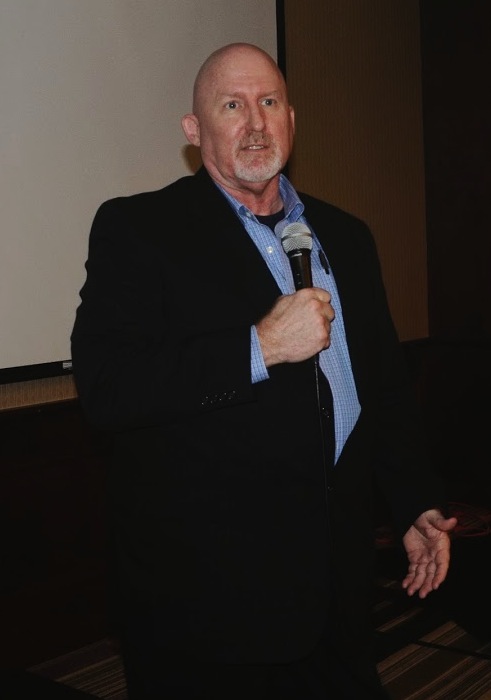Last week, I blogged about my big week. I started acting classes and gave my first hour-long keynote speech. Today, let’s look back at the week and frame it into a big “Aha” moment.
At the acting class, my first acting class ever, I was understandably lost.
However, after observing my first cold reading scene, my instructor game me the comforting message … “Don’t worry, I can fix you!” Just what I wanted to hear! I know I have hours of work ahead of me, but I am determined to get better and get back to the Groundlings classes.
My keynote speech at PMI-LA went very well. I:
- connected with the audience.
- spoke from the heart.
- didn’t stay married to my script.
- made the four points I wanted to make.
- got laughs at the funny parts.
- successfully communicated my message.
And the speech (including a robust Q&A) ran short, so everyone got to go home early … which made everyone, with the exception of the meeting planner, happy.
At least a dozen of the 70 or so people there came up to me afterward, saying they were inspired by my story and that they needed to hear my message. The next day, I had several emails echoing the same sentiments. One even referred me to the leader of another group, recommending that I speak to them. Yay!
Now, the Aha moment about Talent vs Determination.

David Mamet, an award-winning American playwright, essayist, screenwriter, and film director. In his book “True and False: Heresy and Common Sense for the Actor,” Mamet says, “If you work to improve those things about yourself which you may control, you will find you have rewarded yourself for what you have become.” Essentially, you cannot control your talent but you can control how hard you work to improve yourself. He further says, “Pursuit of these disciplines will make you strong and give you self-respect— you will have worked for them and no one can take that from you. Pleasure in your “talent” can (and will) be taken from you by the merest inattention of the person on whom you have deigned to exercise it.”
Stephen Covey, in the 7 Habits of Highly Effective People, talks about the Circle of Concern (the things we are concerned about) and the Circle of Influence (the things we can influence). Covey observed that effective people spend more of their time thinking about things they can influence rather than things they can do nothing about.
When you take Mamet and Covey and apply my story, you get this:
If you want to be effective in your pursuits,
do not worry about how talented you are or you aren’t.
Do spend your time doing the work… getting better… step by step… with relentless determination.
I started my journey to overcome stage fright with no obvious talent. I was determined to overcome stage fright. I took action, simple steps including hours of practice and performance. The result? Success!
Remember, if Walt can do it, you can do it, too!
—-
P.S. I came up with an add to my tag line during the speech …. I am living the dream … and I don’t want to wake up!



